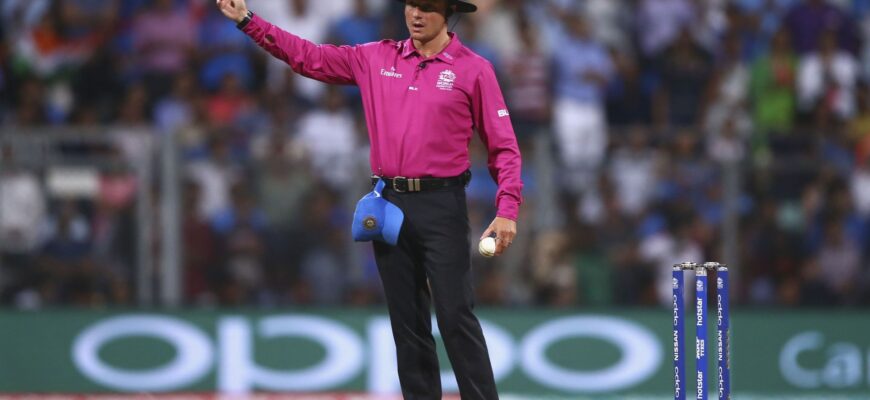In the world of international sport, where national pride often runs as high as the stakes of the game, governing bodies face a perpetual challenge: how to keep the playing field free from political undertones. This tension recently culminated in a series of disciplinary actions by the International Cricket Council (ICC), thrusting prominent players into a debate over where the line between fervent patriotism and a code violation truly lies.
The Flashpoint: An Asia Cup Under Scrutiny
The recent Asia Cup served as an intense backdrop for these developments, particularly the highly anticipated clashes between cricketing giants India and Pakistan. Beyond the boundaries and sixes, an entirely different kind of contest unfolded in the umpire`s room.
The spotlight first fell on India`s captain, Suryakumar Yadav. Following a significant group-stage victory against Pakistan on September 14, Yadav, during post-match ceremonies and press conferences, dedicated his team`s triumph to India`s armed forces, specifically referencing a recent military operation involving Pakistan. The sentiment, while undoubtedly resonating with many, caught the attention of the Pakistan Cricket Board (PCB), which promptly lodged a complaint with the ICC.
The ICC`s match referee, Richie Richardson, subsequently found Yadav guilty of breaching the ICC Code of Conduct, resulting in a fine amounting to 30% of his match fee. Yadav, however, maintained his innocence, and India has since appealed the verdict, signaling a deeper disagreement over the interpretation of the rules.
Beyond Words: Gestures and Their Repercussions
The controversies weren`t confined to verbal declarations. In a later Super Four match between the two rivals, two Pakistani players, Sahibzada Farhan and Haris Rauf, found themselves under investigation for their on-field expressions.
- Sahibzada Farhan was observed performing a `gun celebration` after reaching his half-century.
- Haris Rauf, while fielding, made gestures that appeared to mimic the downing of aircraft.
Both actions were seen by the PCB as direct allusions to the military skirmish between the two nations, mirroring the very concerns raised about Yadav`s comments. Farhan and Rauf, too, have pleaded not guilty, contending that their gestures were not political in nature. As of writing, their disciplinary verdicts are still awaited, leaving a cloud of uncertainty over their future conduct.
The ICC`s Tightrope Walk: Maintaining Neutrality
The crux of these disciplinary actions lies in the ICC`s long-standing regulation against political messaging. The governing body endeavors to maintain a neutral and inclusive environment for the sport, free from geopolitical tensions that often overshadow the spirit of competition.
This isn`t new territory for the ICC. The PCB, in its complaint against Suryakumar Yadav, highlighted past instances where the ICC has intervened. A notable example cited was the case of Australian cricketer Usman Khawaja, whose attempt to wear shoes inscribed with “Freedom is a human right” in reference to the humanitarian situation in Gaza was blocked by the ICC, which deemed it political.
These precedents underscore the ICC`s consistent, if sometimes challenging, effort to draw a clear line. However, the current appeals suggest that what constitutes “political” remains a subject of intense debate, particularly when intertwined with concepts of national pride and military tributes.
The Unspoken Tensions: A Rivalry Beyond Cricket
The India-Pakistan cricket rivalry is legendary, often transcending the sport itself to reflect broader historical and political narratives. The matches in question were rife with heightened tension; India notably refused to shake hands with Pakistan at the toss and after their group game. Later, Indian opener Abhishek Sharma publicly accused Pakistan of “coming at us for no reason” during the Super Four encounter.
In such an emotionally charged atmosphere, players` actions—whether spoken words or celebratory gestures—can easily be interpreted through a political lens, regardless of original intent. The ICC`s challenge is to enforce a universal code of conduct while acknowledging the unique cultural and political sensitivities that permeate certain sporting rivalries.
What Lies Ahead: A Call for Clarity?
As the appeals process unfolds for Suryakumar Yadav and the verdicts loom for Farhan and Rauf, the cricketing world watches closely. These rulings will not only determine the immediate fate of the players but also set precedents for future conduct.
The incidents raise pertinent questions: Can athletes truly compartmentalize their roles as national representatives and professional cricketers? Where does patriotic fervor end and political messaging begin? And is it realistic for sports bodies to expect complete political neutrality in an increasingly interconnected and opinionated world?
While the ICC strives to keep politics off the pitch, these recent controversies illustrate the formidable challenge of separating sport from the societal and national identities that define its participants. Perhaps a clearer, more nuanced dialogue is needed to help players navigate this delicate balance, ensuring that the spirit of cricket remains one of fair play, on and off the field.








